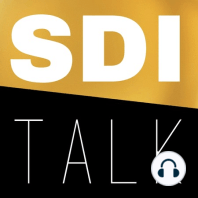8 min listen

2 FRIGHTENING INDICATORS on Wall Street - and for Real Estate | Episode 168
FromSelf Directed Investor Talk: Alternative Asset Investing through Self-Directed IRA's & Solo 401k's
2 FRIGHTENING INDICATORS on Wall Street - and for Real Estate | Episode 168
FromSelf Directed Investor Talk: Alternative Asset Investing through Self-Directed IRA's & Solo 401k's
ratings:
Length:
7 minutes
Released:
Dec 15, 2015
Format:
Podcast episode
Description
Are alarm bells ringing on Wall Street? Last week saw 2 huge announcements… and neither are good for the financial markets. I’m Bryan Ellis. I’ll tell you what they are, and why they matter to you RIGHT NOW in Episode #168.-----Hello SDI Nation! Welcome to the podcast of record for savvy self-directed investors like you!Last week was a big week in the financial markets… and you may not have even heard why.Two rather large bond investing companies – Third Avenue Management and Stone Lion Capital – closed off some of their mutual funds from redemptions by investors.In plain language that means: Investors put money in, but now they can’t take it out.Why is this important? Isn’t it just a function of placing your capital at risk?Sure it is. But there are a couple of issues which make these specific fund closures particularly distressing.First: These are MUTUAL funds, not HEDGE funds. Hedge funds are aimed at wealthy individuals who, while they are no more interested in losing money than anyone else, are generally better able to ride out financial storms. In fact, most investors in hedge funds specifically agree to minimal liquidity as a requirement to participate in the fund.But these funds are MUTUAL funds… mutual funds are funds made for the masses, which are specifically designed to provide ongoing liquidity for their investors. Liquidity and professional diversification are really the two big THEORETICAL benefits that the average retail investor gets from investing in a mutual fund.But in the cases of Third Avenue and Stone Lion… retail investors are getting the shaft, and it’s all because the type of assets purchased by those funds – distressed debt, mostly corporate debt – does not have enough of a ready market for the mutual fund managers to sell their assets in order to pay out on fund redemptions. That market is dry.So the first big issue here is that two sizable mutual funds are essentially now dead.But the other big issue is this: This is a BOND MARKET issue. Those funds are bond market investment funds. So if you’re a stock market investor, you might think this is not relevant to you. Wrong-o, my friends.Do you think that the stock market is big? Sure it is. One estimate shows the U.S. equities market as having a size of $26.3 TRILLION… huge, huge, huge for sure. But dwarfed by the U.S. bond market, with a size of $39.5 TRILLION. Other estimates suggest that the divide between the size of the stock and bond markets is even bigger than that… that the bond market actually totally DWARFS the stock market.Why does this matter? Well, because the bond market is so much larger than the stock market, bonds are frequently a leading indicator for what happens in stocks.And this thing with Third Avenue and Stone Lion… well, it’s not a good sign. For the sake of perspective, it’s important to note that neither of those fund are very large on a relative basis, totaling under $1.2 Billion in assets. But that doesn’t seem to matter, because there’s a total of about $1.4 TRILLION worth of that type of distressed debt out there right now… and that’s more than enough to cause tremors in the bond market… and later, in the stock market.In fact, there’s a tendency that some have observed that works like this: The bond market – as more generally represented by treasury bonds rather than distressed debt – falls off or even craters. But the stock market diverges and goes upward for a period of time, usually around 6 months, before equities realign with bonds at a lower level.That’s a mouthful. Here’s the layman’s version of all of that: The “high yield” bond market – what they used to call “junk bonds” – appears to be in trouble. And there’s well-founded fear that the contagion in junk bonds will spread to the broader bond market, and ultimately to the stock market as well.And some people think there’s a correlation between junk bonds and the real estate markets, too… particularly the high-flying real estate market
Released:
Dec 15, 2015
Format:
Podcast episode
Titles in the series (100)
SDI 021: Why 2015 Will Be GREAT For This Type Of Cash Flowing Asset...: 2015 Is Setting Up As A GREAT Year For A Specific Type Of Cash Flowing Investment Strategy... Find Out Why Demographics Support This Notion... And How To Get Involved While It's Wise To Do So! by Self Directed Investor Talk: Alternative Asset Investing through Self-Directed IRA's & Solo 401k's